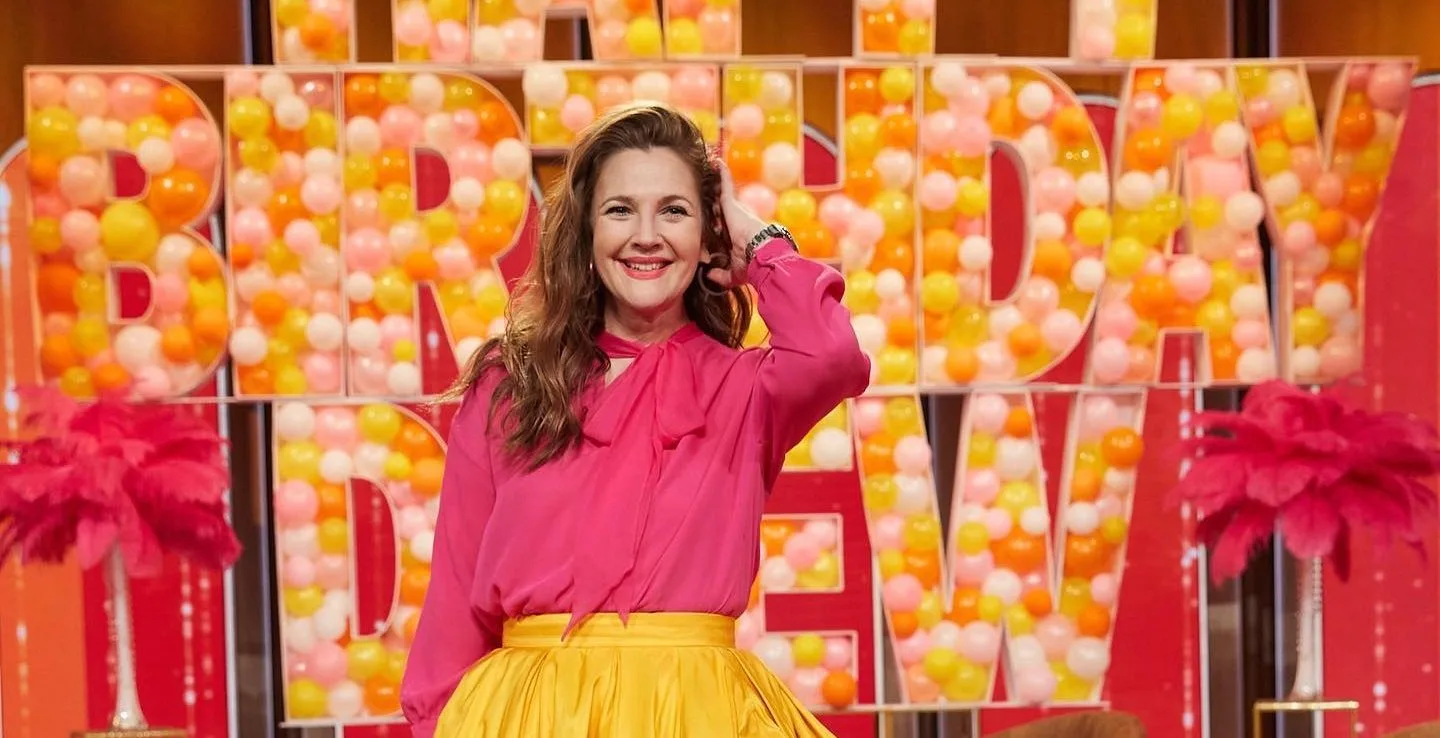Drew Barrymore has always been an open book when it comes to her life, so it’s no wonder she has her talk show where she allows celebrity guests to do the same.
But during a recent live taping of her show, while interviewing Murder Mystery 2’s Jennifer Aniston and Adam Sandler, the 48-year-old star shared that she was experiencing her first hot flash,
“I’m so hot. I think I’m having one of my first perimenopause hot flashes. For the first time, I think I’m having my first hot flash. Woah.”
What is a hot flash?
According to the North American Menopause Society (NAMS), around 1.3 million people enter menopause every year, and 3 in every 4 of these individuals will experience hot flashes.
Hot flashes are the most famous menopausal symptom, but what are they exactly?
According to experts and anecdotal evidence, hot flashes are the feeling of intense heat that occurs. According to the Mayo Clinic, during a hot flash, you may experience:
- A sudden feeling of warmth spreading through your chest, neck, and face
- A flushed appearance with red, blotchy skin
- Rapid heartbeat
- Perspiration, mostly on your upper body
- A chilled feeling as the hot flash lets up
- Feelings of anxiety
What causes hot flashes?
According to experts, hormonal changes that come with perimenopause and menopause are to blame for hot flashes.
“All of our hormones work in conjunction with feedback mechanisms in the brain, and when estrogen levels fall it tells the hypothalamus that we are too hot,” explains holistic nutritionist and wellness expert Jennifer Hanway.
“Our bodies are always trying to achieve equilibrium, so in this case, the nervous system sends messages to upregulate heart rate and blood pressure. Our sweat glands also help to dissipate the heat.”
How long does a hot flash last?
This varies, with some hot flashes lasting only a few seconds. However, some may even last for more than 10 minutes.
The frequency of hot flashes is also something that varies, with some individuals only experiencing hot flashes a few times a week, and others having to deal with hot flashes several times an hour.
A 2022 study found that black women were 50 percent more likely to have hot flashes and night sweats (hot flashes that wake you up at night) compared with white women. Their hot flashes also tended to be more frequent.
So, how uncomfortable are hot flashes?
Not too bad, as in one study featuring people experiencing hot flashes, about 9% described them as severe, 56% as moderate-intensity, and 33% as mild.
What causes hot flashes?
Every person’s experiences of hot flashes will differ, and this includes what triggers them. However, the following are the most common triggers for hot flashes:
- alcohol and caffeine consumption
- eating spicy foods
- being in a hot room
- stress or anxiety
- tight clothing
- smoking and cigarette smoke
- bending over
Since hot flashes can be triggered by different things, you may want to start monitoring your hot flashes and wiring down what you were doing and wearing when you experienced a hot flash.
Can I prevent a hot flash?
We don’t think it’s possible to completely prevent a hot flash. However, once you identify your triggers and make adjustments, you should be able to reduce the frequency of your hot flashes.

drewbarrymore/instagram
Now, while no treatment is guaranteed to prevent or stop hot flashes, there are options available to help manage them.
Managing hot flashes
If you’re experiencing a hot flash, the best thing to do is to remain calm, as doing so can help reduce the duration and severity. It would also be a good idea to sip on ice water and dress in layers so that it’s easier to adjust your clothing should your hot flush be severe.
What else can I do?
Adopting healthy lifestyle habits may also help to mitigate the severity of hot flashes. For instance, one study found that participants who lost more than 10 percent of their body weight experienced a greater reduction in hot flashes than the control group.
Lifestyle choices that can help reduce the incidence and severity of hot flashes include:
- Quitting smoking and staying away from secondhand smoke
- Consuming a healthy and balanced diet
- Exercising
Do hot flashes last forever?
Well, it depends on who you are.
Hot flashes can last anywhere from six months to two years to 10 years, and for some, hot flashes can last forever.
Do all hot flashes mean menopause?
Hot flashes may be the most common menopausal symptom, but in some cases, they can be a sign of something else. Hot flashes may also indicate pregnancy, a thyroid condition (hyperthyroidism or hypothyroidism), diabetes, and primary ovarian insufficiency (POI).
If you are experiencing hot flashes and believe your body is experiencing menopause early, then be sure to consult your doctor so they can perform the necessary tests.
Want to know more?
A healthy diet and other lifestyle habits can help ease menopause symptoms, and sometimes you need some added help. Here are 9 supplements to help you manage menopause symptoms.
MAIN IMAGE CREDIT: drewbarrymore/instagram
References
Gallicchio, L., Miller, S. R., Kiefer, J., Greene, T., Zacur, H. A., & Flaws, J. A. (2015). Risk factors for hot flashes among women undergoing the menopausal transition: baseline results from the Midlife Women’s Health Study. Menopause (New York, N.Y.), 22(10), 1098–1107. https://doi.org/10.1097/GME.0000000000000434
Harlow, S.D., Burnett-Bowie, SA.M., Greendale, G.A. et al. Disparities in Reproductive Aging and Midlife Health between Black and White women: The Study of Women’s Health Across the Nation (SWAN). womens midlife health 8, 3 (2022). https://doi.org/10.1186/s40695-022-00073-y
Thurston, R. C., Ewing, L. J., Low, C. A., Christie, A. J., & Levine, M. D. (2015). Behavioral weight loss for the management of menopausal hot flashes: a pilot study. Menopause (New York, N.Y.), 22(1), 59–65. https://doi.org/10.1097/GME.0000000000000274





![women [longevity live]](https://longevitylive.com/wp-content/uploads/2020/01/photo-of-women-walking-down-the-street-1116984-100x100.jpg)









